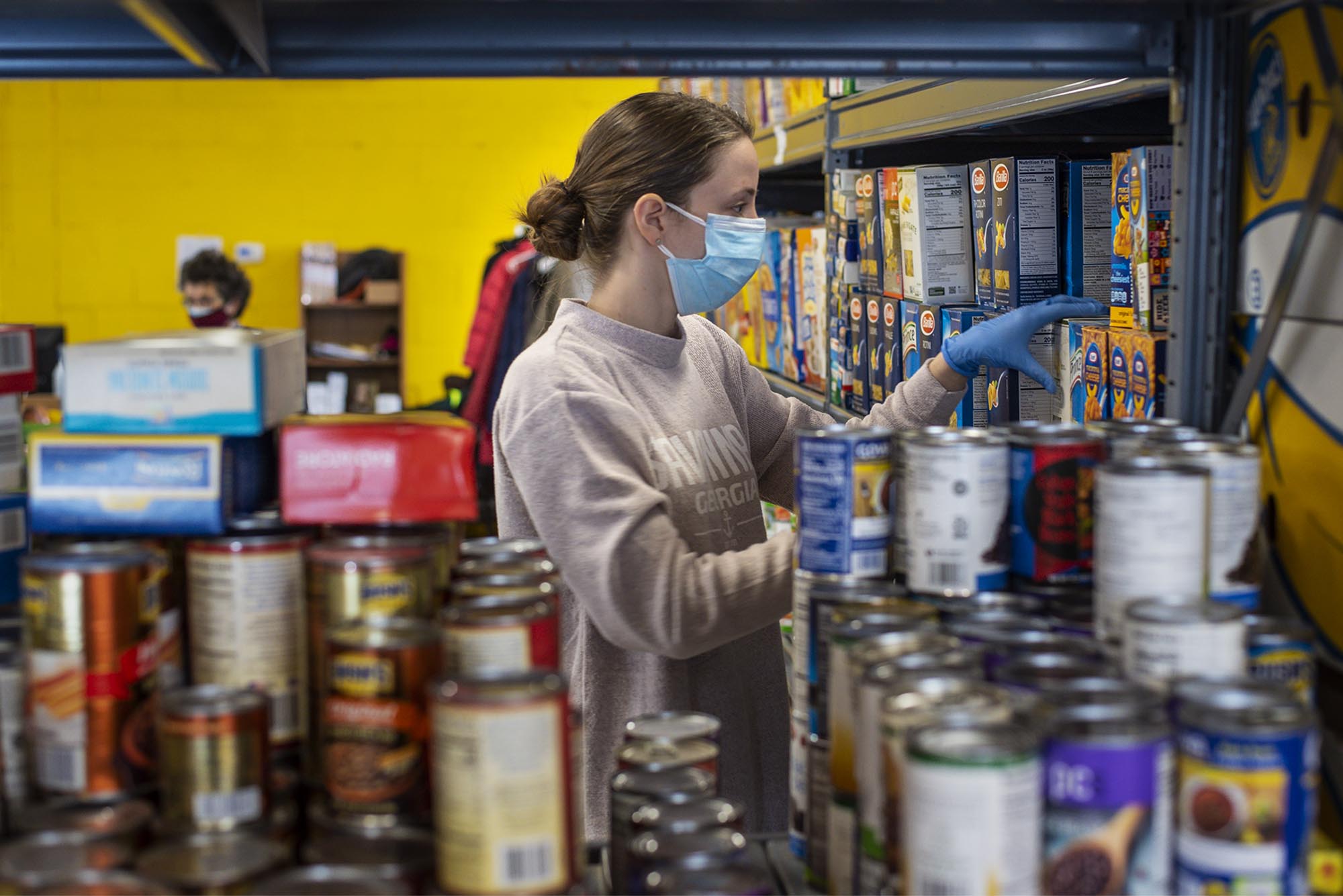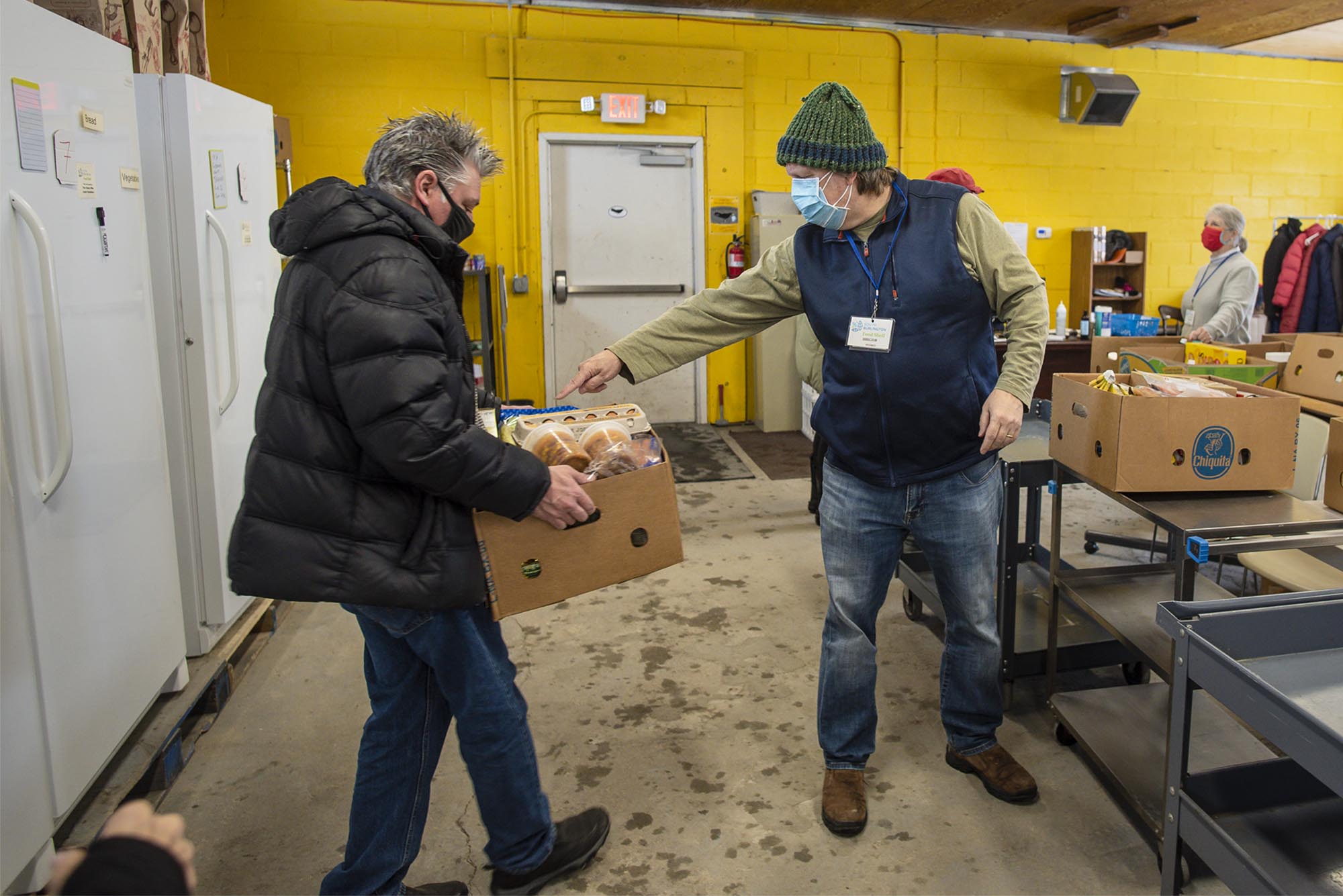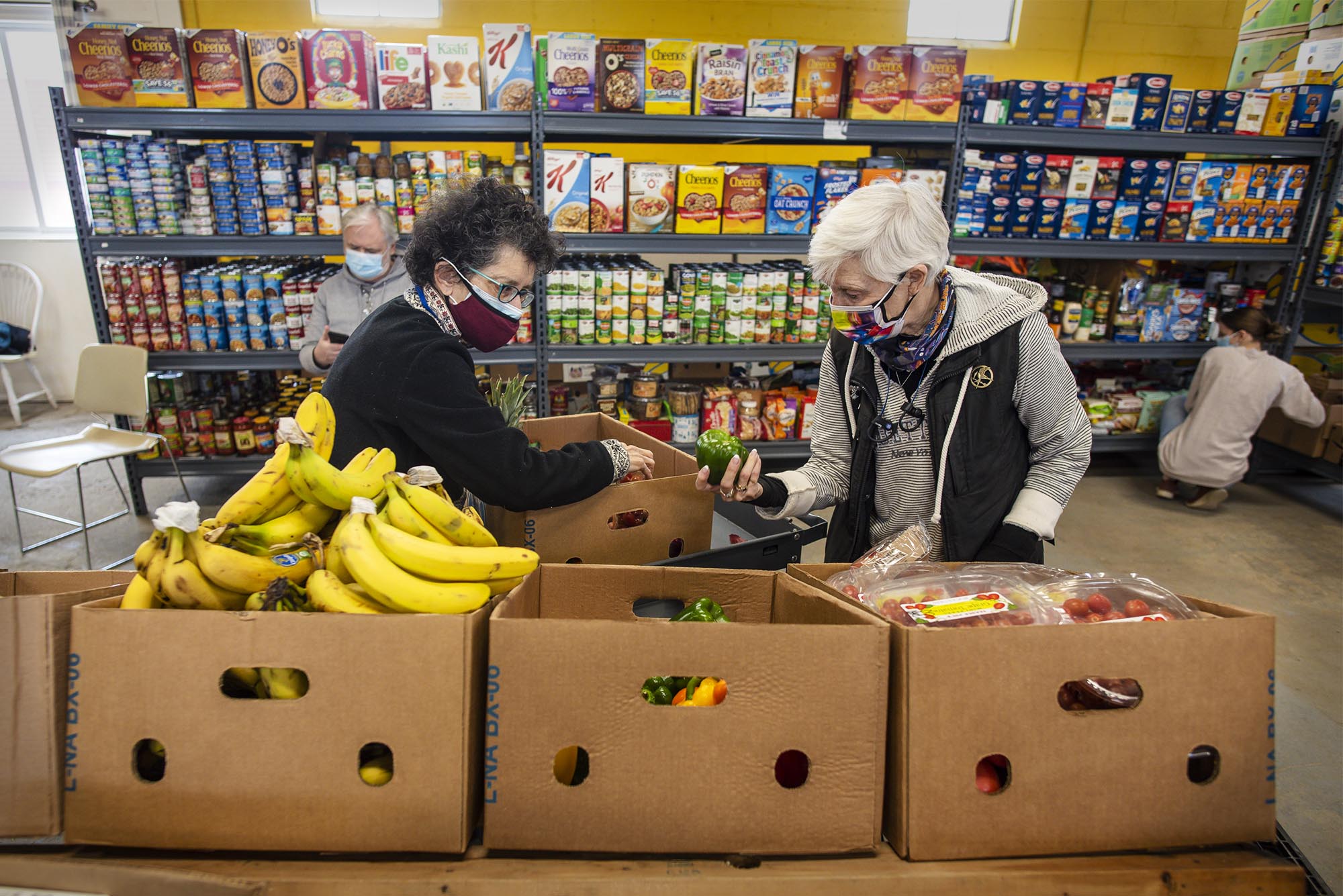
When Peter Carmolli opened South Burlington’s first food shelf in November 2019, he wasn’t expecting a global pandemic to strike a few months later. Covid-19 completely upended his operations.
About half of Carmolli’s volunteer staff stepped down in March 2020 because they were in the at-risk age group for Covid-19. Meanwhile, the food shelf’s workload was growing — food insecurity was on the rise nationwide.
In Vermont, 70,580 people are currently struggling with hunger, according to Feeding America. Since the pandemic’s onset, nearly 30 percent of Vermonters have experienced food insecurity — almost triple 2018 levels — a study by the University of Vermont found.
“We were just figuring out what to do when the apocalypse hit. We are now relearning what to do,” Carmolli said. “The timing couldn’t have been better or worse, depending on your perspective.”
Initially, the charity’s board met to discuss whether to remain open. Gretchen Gundrum, a board member and South Burlington resident who has been using the food shelf’s services since 2019, strongly advocated continuing to serve the community.
Gundrum recognized from her own experiences as a single mother of two children with special needs that it would be more difficult to juggle child care and find gainful employment in the pandemic. She wanted to ensure that the food shelf would be open for neighbors dealing with similar concerns.
“Even when you’re facing a financial setback, you still have to eat,” Gundrum said. “What you see a lot is people having to choose: Do you pay your light bill or put food on the table?”
The board decided to keep the food shelf open, and about 30 separate households per week now use the service. Carmolli and his volunteer staff give out between 70 and 80 pounds of food and supplies to each household, totaling more than 2,000 pounds per week.
Since the food shelf opened its doors in 2019, Carmolli has missed work just two days.
Staff at Lamoille Community Food Share in Morrisville struggled, too, with increased need — visits were up by 59 percent last year, according to Susan Rousselle, the community engagement coordinator. Although numbers began to level off in January, it was still a record-breaking month for the food share.
“The greatest challenge is keeping up with demand,” Rousselle said.
Interrupted supply chains have made it more time-consuming to order food. The loss of volunteer support (many at Lamoille were also over age 65), meant more labor for the remaining workers.
Beyond the sheer amount of food and supplies that needed to be distributed, Carmolli suddenly had to navigate ever-changing safety guidelines to keep his staff, clients and himself Covid-free. Donations are left untouched for 24 hours before distribution, staff frequently wash and sanitize their hands, and volunteers prepack bags of food that Carmolli hands to clients outside while everyone wears masks and stays at least 6 feet apart.
Carmolli limits contact with clients for safety reasons, but he considers social interactions an essential part of the job.
“People need food, but sometimes they also need to talk,” he said. “So many people have no contacts. The mental health aspect is something you have to keep in mind along with the physical health.”
His greatest challenge? Not being able to give someone a big hug when it’s the No. 1 sense of connection they need.





Barriers to help
Another barrier that Carmolli has worked to overcome is the stigma of receiving food assistance. Many customers are embarrassed about using the food shelf, he said. There is a similar stigma associated with federal programs like 3SquaresVT, Vermont’s version of the federal Supplemental Nutrition Assistance Program.
“The message [from leaders in the federal government] has been loud and clear that, if you seek out government assistance, there is something wrong with you. To me, this is outrageous,” said Anore Horton, executive director of Hunger Free Vermont. “The causes of hunger are not moral, and they are not personal. They are purely economic and systemic.”
Horton also lamented the lack of effort put into promoting 3SquaresVT at the governor’s twice-weekly press conferences. Although charitable projects like Everyone Eats and food shelves are doing essential work, Horton thinks they have received a disproportionate amount of attention while federal programs have largely been ignored.
Food shelves have reported an increase in donations, and there is more collaboration across the state to help fill in gaps, according to Carmolli.
Community networks have also been expanded to include producers and farmers. For instance, Lamoille Community Food Share, based in Morrisville, began buying local products to make up for supply-chain disruptions at the national level and plans to continue these partnerships into the future.
“We’re all in this together,” Carmolli said.
To find out if you’re eligible for 3SquaresVT or to apply: https://vermontfoodhelp.com
To find a food shelf in your area: https://www.vtfoodbank.org/agency-locator
To participate in Everyone Eats: https://vteveryoneeats.org/find-a-meal


